Paris attacks: The crisis of Europe’s borders
- Published
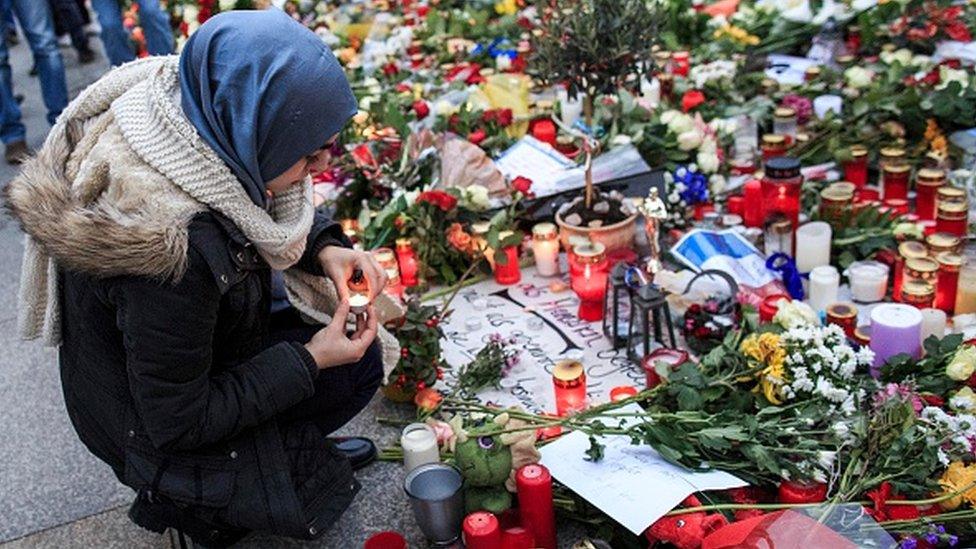
Europe's open borders were already under strain from the refugee crisis. After the attacks in Paris there are increasing doubts about whether they can survive without being reinforced.
Firstly - and not unexpectedly - the far right has used the crisis to challenge Europe's passport-free zone as guaranteed by the Schengen agreement. Marine Le Pen, the leader of the National Front in France, called passport-free travel "madness" and insisted: "We have to reinstate our national borders."
Some have directly connected the refugee crisis with the events in Paris. In Germany, the anti-Islamist protest group Pegida - which holds weekly protests in Dresden - said on Monday that "the attacks don't come out of nowhere; they are the result of the immigration policy."
Certainly in Germany, mainstream parties and politicians have resisted linking refugees to the Paris attacks. "We must not make the mistake," said the German Defence Minister, Ursula von der Leyen, external, "of equating refugees with terrorists."
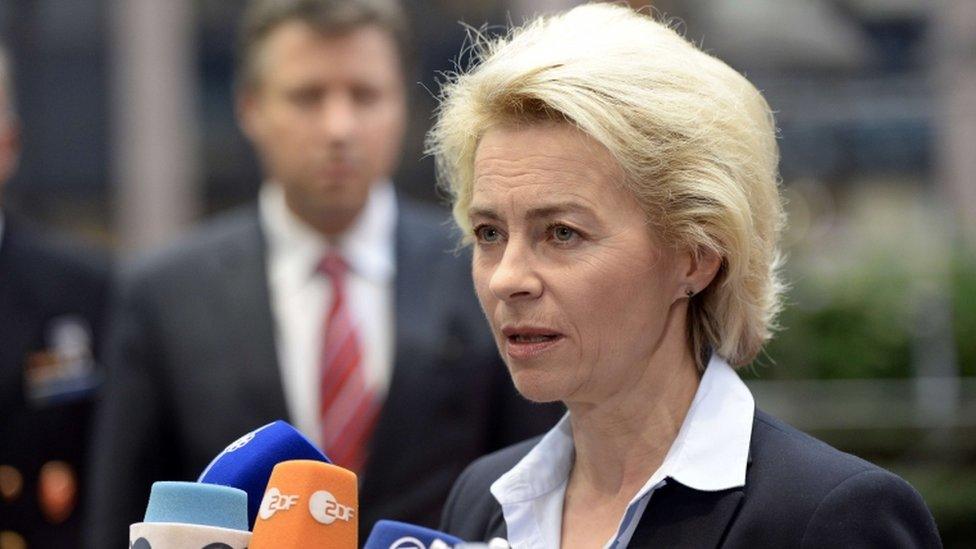
Ursula von der Leyen has warned against equating refugees with terrorists
The German police chief said that so far "we've no indication that a terrorist has entered Germany as an asylum seeker in order to carry out an attack".
Sensitive issue
Despite a fingerprint from one of the suspected suicide bombers matching one registered in Greece in October, the view in Germany is that extremists do not need to use the hazardous migrant route from Turkey, through the Balkans towards Western Europe.
Some of the jihadists returning from Syria are French or Belgian citizens with legitimate passports.
But the matter is hugely sensitive. Already this year, the German federal police have registered more than 700 crimes against shelters for refugees. Any evidence that militants were using the refugee columns as some kind of cover to get to Europe would be a serious development in Germany.
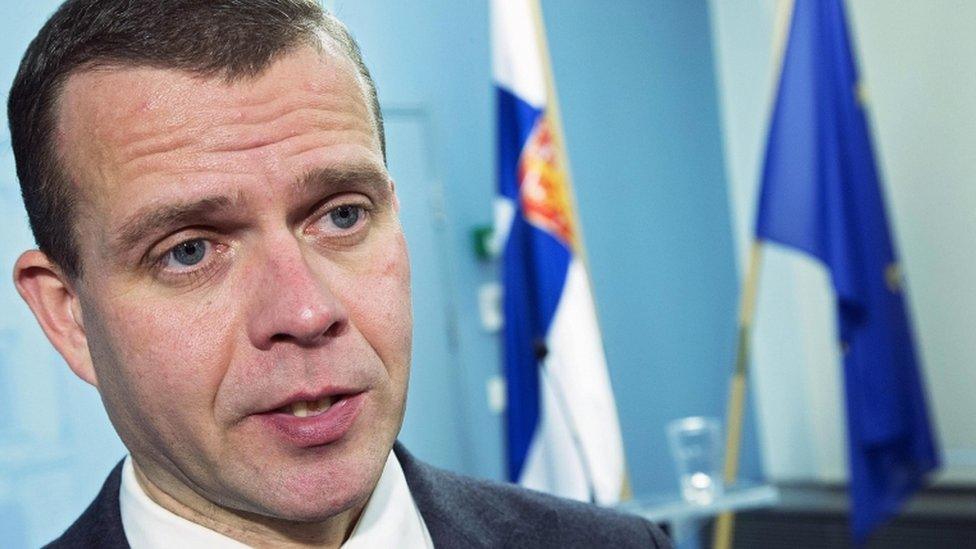
Petteri Orpo has warned of thousands of unregistered people coming into Europe
Certainly, for the moment, there have been many calls not to blame refugees who are, after all, fleeing violence themselves.
However, many officials and politicians are warning that in the weeks ahead, the passport-free Schengen zone could be at risk. Finland's Interior Minister Petteri Orpo said: "Tens of thousands of people were coming into Europe and they are not being registered. We don't know who they are."
Intelligence questions
The threat to the survival of the Schengen agreement comes less from the refugee crisis than from the fallout from the terror attacks in Paris.
Karl-Georg Wellman, a member of the Bundestag's foreign affairs committee, said that the German people were told when national border controls were removed that they would be replaced by controls at the EU's external borders. If those controls were not working, he said, then national border posts would return.
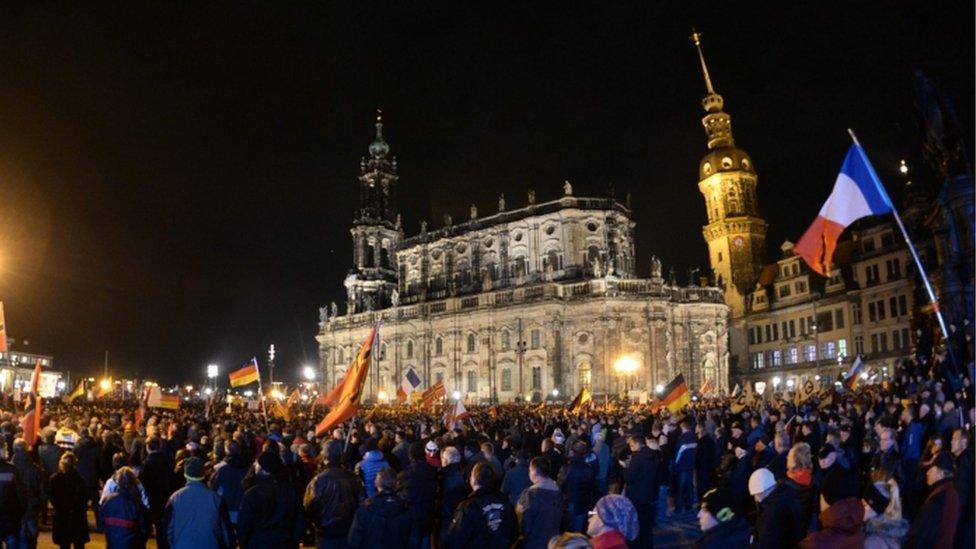
The anti-Islam movement Pegida holds weekly rallies
It is not just politicians but the intelligence community that is questioning a Europe where extremists are able to move people and weapons freely between countries in the Schengen area.
The former security chief at France's DGSE external intelligence service, Alain Chouet, said: "We have a problem with controlling Europe's Schengen borders - a big one."
He said that the arrival of one of the men who turned out to be a suicide bomber "should have triggered a red flag but these guys understand very well the techniques for entering and exiting the Schengen zone".

Schengen zone

There are 26 countries in Schengen - 22 EU members and four non-EU. Those four are: Iceland and Norway (since 2001), Switzerland (since 2008) and Liechtenstein (since 2011).
Schengen took effect in 1995, the first members being: Belgium, France, Germany, Luxembourg, the Netherlands, Portugal and Spain.
They were followed by Italy and Austria in 1997, Greece in 2000, and the Nordic countries in 2001.
Nine more EU countries joined in 2007, after the EU's eastward enlargement in 2004. They are: the Czech Republic, Estonia, Hungary, Lithuania, Latvia, Malta, Poland, Slovakia and Slovenia.

'Race against time'
In a paper the Centre for European Reform argued that, external: "Europe should not dismantle Schengen, but improve it, by processing refugees more effectively, deploying many more border guards at Europe's outer borders and improving sharing intelligence among the member states."
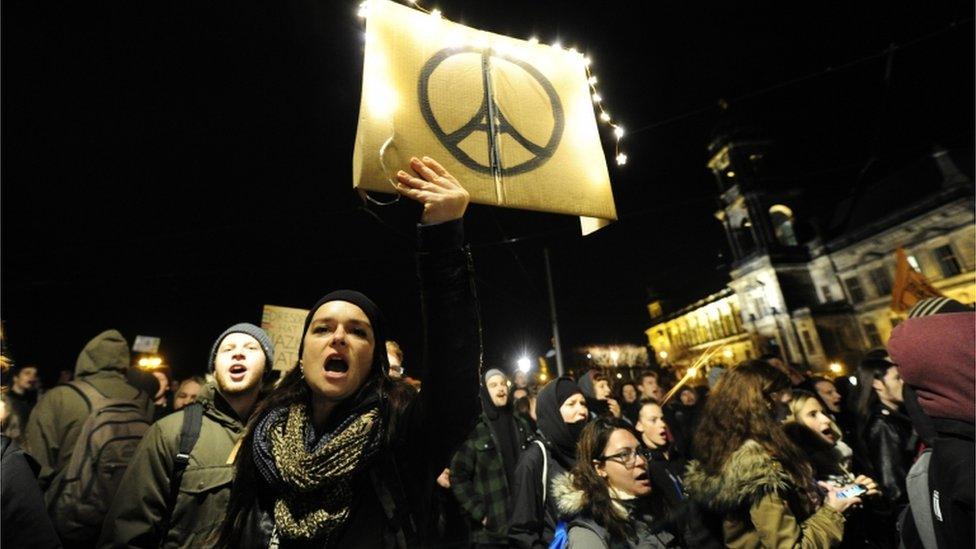
Some in Germany are angry about the upsurge in anti-Muslim sentiment
In the meantime countries including Austria, Slovenia, Germany, Hungary and Sweden have all taken steps to strengthen border controls.
What you hear repeatedly from European officials and politicians is this: if the EU's external borders cannot be fixed then the Schengen zone cannot survive.
One senior official in Brussels described it as a race against time. Opposition leaders in France are talking about Schengen needing to be changed in order to deliver security to the French people.
It is most unlikely that the Schengen agreement will be suspended because it is a core European freedom. What is more likely in the weeks ahead is that countries in the Schengen zone quietly begin reinforcing their national borders.